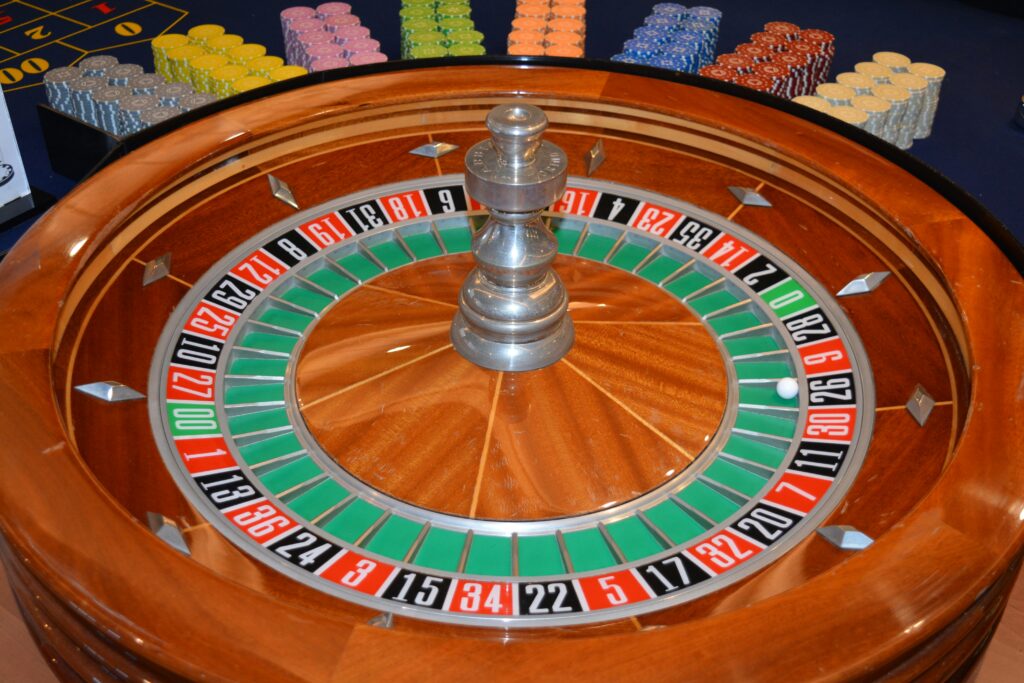Introduction: Knowing When to Pause
Gambling online can be entertaining—quick rounds, slick platforms, the thrill of a win. But that same excitement can turn sour when it slides from fun to fixation. The line between casual play and harmful habit isn’t always obvious, especially when the next game is just a click away.
That’s where self-awareness becomes everything. Knowing your limits and listening when things feel off isn’t just smart—it’s necessary. The best gamblers aren’t the ones who win the most; they’re the ones who know when to step back.
Self-exclusion programs are built for that moment. They’re opt-in tools that let users block themselves from gambling sites for a set period—days, months, or even permanently. The goal is simple: stop the momentum before it spirals, give yourself space, and regain control. It’s not about quitting forever (unless that’s the goal). It’s about creating distance when the game stops working for you.
In 2024, as online gambling keeps growing, knowing when to pause is not a weakness—it’s strength. And self-exclusion is one of the smartest moves a player can make.
What Is a Self-Exclusion Program?
A self-exclusion program is a formal agreement between a player and an online casino that blocks the player from accessing gambling services for a set period of time. It’s a tool designed to help people pause or completely stop their gambling activity—especially if they feel things are getting out of hand. Once active, the platform restricts logins, disables betting features, and often removes the user from marketing lists.
There are two main types: voluntary and mandatory. Voluntary self-exclusion means the player chooses to opt out—no pressure from platforms or third parties. It’s a personal decision, often made after recognizing that habits might be sliding. Mandatory exclusion, on the other hand, is usually enforced by the platform. This could happen if a player violates terms of use, shows signs of problem behavior, or is flagged by family or counselors.
Timeframes vary. Some players choose short-term breaks—like 24 hours, a week, or a month—just to reset. Others opt for long-term blocks spanning six months or a year. In some cases, users apply for lifetime bans, though those sometimes include opportunities for formal reinstatement after a cooling-off period. It all depends on what’s needed to regain control and establish healthier habits.
Supporting Mental Well-being
Self-exclusion isn’t just about cutting off access—it’s about creating space. When players step back, stress levels often drop. The guilt spins down. There’s a noticeable shift from reactive behavior to intentional thought. That gap in play can help interrupt compulsive patterns and allow emotions to settle.
It’s not magic—it’s mental clarity. Without the constant push of flashing promos or losses chasing wins, players get time to reflect. That clarity can lead to better decisions, calmer moods, and more balanced priorities. For many, it’s the first step toward a healthier relationship with gaming overall. It doesn’t fix everything, but it gives the mind room to breathe.
How to Access Self-Exclusion Tools
Self-exclusion tools aren’t buried in fine print anymore—they’re easier to find than most people think. Most reputable online casinos now have dedicated sections in account settings where users can set deposit limits, take time-outs, or activate full exclusion periods. Usually, you’ll find this under something like “Responsible Gambling” or “Play Safe Tools.”
Step one: log into your account. Step two: go to your profile or settings. Step three: select the option for self-exclusion. From there, you’ll typically be able to choose how long you want to step away—anything from a day to a lifetime ban. You’ll need to confirm your choice, and once activated, you won’t be able to log in or make new accounts during the exclusion window.
Not every platform handles this process the same way. Some like Betway or 888casino offer layered options—temporary cooling-off periods, session reminders, or deposit limits. Others may direct you to country-based exclusion registries, which cover multiple operators with a single sign-up.
Outside of the casinos themselves, there are national and third-party tools that go the extra mile. Tools like GAMSTOP in the UK or BetBlocker globally let players exclude themselves across multiple platforms in one move. Apps like Gamban block access to gambling sites entirely on devices where it’s installed.
Bottom line—if you’re looking to take a break or regain control, the tools are there. You just need to use them.
Real-World Impact: Why It Works
Real stories speak volumes. Many users who’ve used self-exclusion tools describe the experience as a turning point—not just in their gambling behavior, but in their mindset. Testimonials often center on clarity, relief, and regaining time once lost to endless spins or late-night betting. There’s no fireworks moment—just the power of stepping away, resetting, and approaching life with more control.
Behavioral data backs it up. Studies show a marked drop in problematic gambling activity among self-excluded individuals. Many report reduced stress and better financial health within months. Some even begin to make long-term changes—like setting permanent deposit limits or seeking professional support.
Online casinos are watching these trends closely. Metrics for success go beyond log-in frequency. They track recovery rates, player feedback, and how often excluded users return—and how they behave when they do. When done right, these programs aren’t just a safety net. They become a measure of a platform’s integrity. In other words: when players feel protected, everyone wins.
Link Between Accountability and Control
Understanding how to stay in control isn’t just about taking breaks—it’s about proactively adopting healthy habits that support long-term, responsible play.
Why Accountability Matters
Accountability helps you track behaviors and decisions more clearly, which leads to better judgment when engaging with online casinos.
- Keeps behavior transparent and intentional
- Encourages consistency in responsible play
- Helps identify patterns before they become problems
Self-Exclusion Is Just One Tool
While self-exclusion is an effective option, it’s only part of a larger picture. True control comes from combining tools, strategies, and support options.
Additional approaches include:
- Setting personal deposit and time limits
- Keeping a gambling journal to monitor emotions and triggers
- Taking regular breaks to reset expectations
- Talking openly with trusted friends or support communities
Explore More Best Practices
To dive deeper into sustainable, self-aware gambling habits, check out this helpful guide:
How to Maintain Control and Know When to Stop
It offers actionable tips and frameworks designed for players who want to keep the game fun—and keep their choices fully in their hands.
Final Thoughts: Protect the Player, Sustain the Experience
At the end of the day, gambling should always be about choice. When it tips into compulsion, the fun fades fast—and so does control. That’s why self-exclusion programs exist: not to limit freedom, but to give it back. They’re tools, not punishments. Smart gamblers know when it’s time to take a step back—and strong platforms make that step easy.
Treating self-exclusion as a form of empowerment isn’t just good for the player, it’s good for the entire system. When users feel supported—not blamed—they’re more likely to return in healthier, more sustainable ways. Trust builds. The space becomes safer for everyone.
Gambling responsibly doesn’t mean walking away from it forever. It means keeping the power in your hands—where it belongs.
Staying in control keeps the game fun—use every tool you’ve got.



